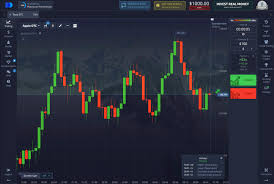
Trading with Ichimoku Kinko Hyo: A Comprehensive Guide
The Ichimoku Kinko Hyo, often referred to simply as ‘Ichimoku,’ is a versatile and comprehensive trading indicator that enables traders to assess price trends and potential reversals with a single glance. Developed by Goichi Hosoda in the late 1930s, it was initially introduced to Japanese railroad operators for predicting price movements. Today, it has gained immense popularity among traders worldwide due to its capability to provide clear signals about market direction, momentum, support, and resistance levels. For those looking to delve deeper into trading using this powerful system, this guide offers an extensive overview of its components and applications. You can find more about utilizing Ichimoku in trading Trading with Ichimoku Kinko Hyo in Pocket Option https://trading-pocketoption.com/torgovlya-s-pomoshhyu-ichimoku-kinko-hyo-v-terminale-ot-pocket-option/.
Understanding the Components of Ichimoku Kinko Hyo
Ichimoku Kinko Hyo consists of five main lines that provide traders with a comprehensive view of market conditions:
- Tenkan-sen (Conversion Line): This line is calculated by averaging the highest high and the lowest low over the last 9 periods. It offers insights into short-term trends and potential reversals.
- Kijun-sen (Base Line): Calculated over the last 26 periods, this line represents a medium-term trend and can be viewed as a support or resistance level.
- Senko Span A (Leading Span A): This line is the average of the Tenkan-sen and Kijun-sen, plotted 26 periods into the future. It forms the upper boundary of the Kumo (cloud).
- Senko Span B (Leading Span B): This is the average of the highest high and lowest low over the last 52 periods, also plotted 26 periods into the future. It forms the lower boundary of the Kumo.
- Chikou Span (Lagging Span): This line represents the closing price plotted 26 periods in the past, offering insight into market momentum.
How to Interpret Ichimoku Lines
One of the main strengths of Ichimoku Kinko Hyo is its ability to combine multiple aspects of technical analysis into one comprehensive view. Here’s how to interpret the lines:
Identifying Trends
The position of the price relative to the Kumo is crucial for determining the trend direction:
- If the price is above the Kumo, it indicates a bullish trend.
- If the price is below the Kumo, it indicates a bearish trend.
- If the price is within the Kumo, the market may be consolidating or in a range-bound environment.
Support and Resistance Levels
The Kumo itself serves as a significant area of support and resistance. Traders often use the top and bottom of the cloud (Senko Span A and Senko Span B) to identify potential areas where the price may react.
Trading Signals Generated by Ichimoku
Traders can utilize various signals generated by the Ichimoku system to make informed trading decisions:

Crossover Signals
When the Tenkan-sen crosses above the Kijun-sen, it generates a bullish signal. Conversely, a bearish signal is produced when the Tenkan-sen crosses below the Kijun-sen.
Cloud Breakouts
Price breaking above the Kumo after being below is often seen as a strong bullish indicator, while a breakout below the Kumo can signal a bearish trend.
Chikou Span Signals
The Lagging Span should also be considered. If it crosses above the price line, it can confirm a bullish trend, while crossing below can reinforce bearish sentiment.
Practical Applications of Ichimoku Kinko Hyo
To effectively trade using the Ichimoku Kinko Hyo system, consider the following strategies:
Combining With Other Indicators
While Ichimoku Kinko Hyo is a complete trading system, combining it with other indicators such as RSI or MACD can provide additional confirmation of signals and enhance trading decisions.
Identifying Time Frames
Ichimoku works on various time frames; however, many traders find the 4-hour and daily charts most effective for spotting trends and executing trades.
Risk Management
Implementing a solid risk management plan is essential. Always set stop-loss orders based on the predefined risk level, and consider trailing stops to lock in profits during favorable trades.
Conclusion
Trading with Ichimoku Kinko Hyo offers a holistic view of market dynamics and facilitates informed trading decisions. While it may take some time to master, the benefits it provides in terms of identifying trends, reversals, and support/resistance levels make it a valuable tool for traders of all skill levels. With a disciplined trading approach and incorporation of this powerful indicator, traders can enhance their performance and achieve better results in the financial markets.